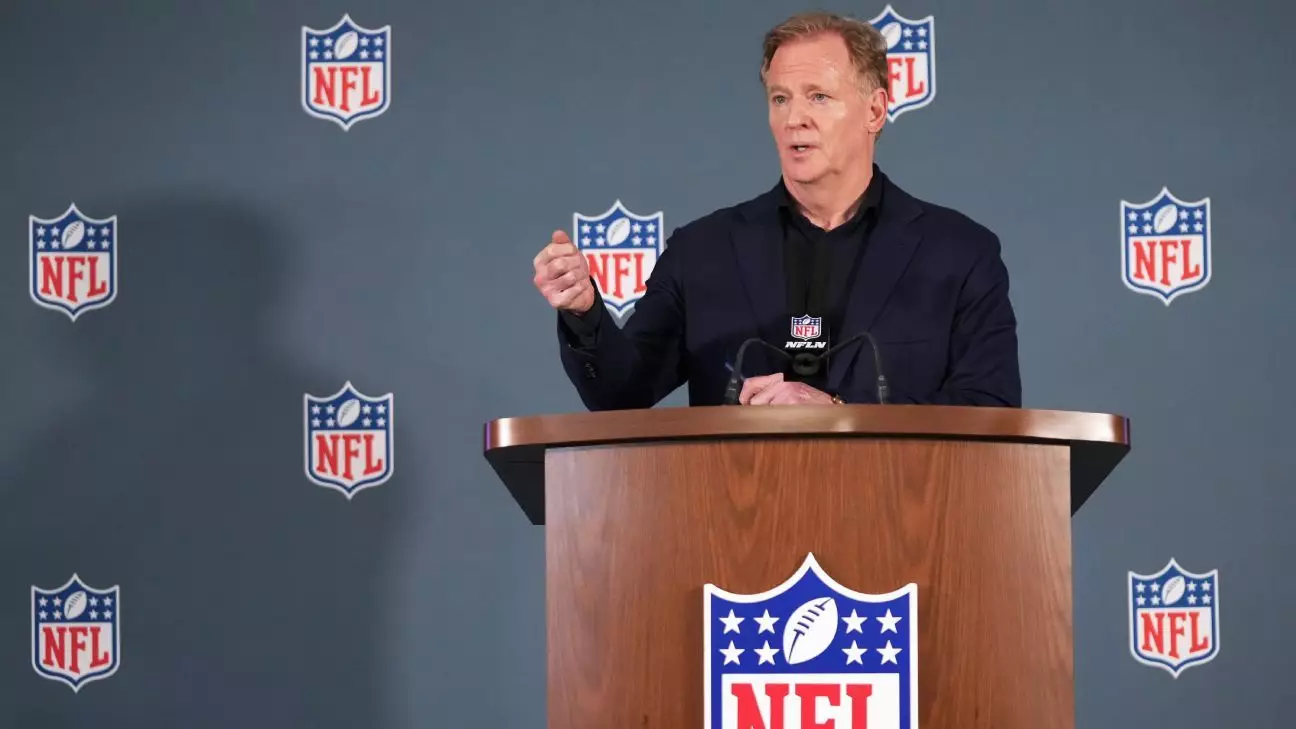The recent revelation from NFL commissioner Roger Goodell about the possibility of NFL players competing in flag football during the highly anticipated 2028 Los Angeles Olympics has stirred excitement across the football community. The inclusion of flag football as an Olympic sport is not just a momentous occasion for the athletes; it symbolizes a transformative moment in how American football can be perceived on the world stage. Goodell’s comments highlighting enthusiasm among players to represent their countries are indicative of more than just a sporting endeavor; they reflect a growing eagerness among athletes to bridge cultural divides through the universal language of sport.
Flag football’s debut as an Olympic sport is a strategic move that aligns perfectly with the NFL’s vision of expanding its reach internationally. The sport’s relatively low barrier to entry compared to tackle football allows diverse participation, making it a compelling avenue for introducing American football to countries where the sport is still in its infancy. For the NFL, supporting flag football is not merely altruistic; it is also a calculated approach to cultivate a global fanbase that could foster greater support for the league in the future. The enthusiasm demonstrated by players wanting to represent their nations in the Olympics is a clear indication that American football, in its various forms, has the potential to transcend borders.
Addressing Concerns for Players’ Well-being
While the prospects of flag football in the Olympics are thrilling, numerous practical concerns require deeper consideration. Chief among these are the injury protections that must be instituted for both players and teams. Participation in a globally visible event like the Olympics could expose players to injuries that might arise from competing at such a high level. Furthermore, the logistics of players’ participation aligning with existing NFL schedules poses another challenge. With NFL training camps typically commencing in late summer, conflicts could arise, thereby demanding careful negotiation between the league and the players’ union.
Goodell’s acknowledgment of these issues reflects a commendable level of foresight, suggesting that the NFL is willing to engage in meaningful dialogue to address concerns that are crucial for players’ well-being. Creating a balance between the glamour of Olympic glory and the rigorous demands of professional football requires innovative solutions, and it will be interesting to see how the NFL navigates these challenges in the upcoming months.
Diversity in the NFL: A Work in Progress
As the league looks to the future and explores avenues like Olympic participation, it must also confront pressing issues of diversity and inclusion. Goodell’s remarks on ongoing efforts to promote diversity within the league come against a backdrop of increasing criticism over a lack of representation, particularly in offensive coaching roles. The absence of Black offensive coordinators is a glaring issue that cannot be ignored, and while Goodell defends the NFL’s commitment to diversity, the true measure of progress will be reflected in tangible outcomes rather than rhetoric.
The Rooney Rule, designed to ensure that underrepresented candidates are given fair consideration for coaching and managerial positions, continues to be a pivotal aspect of this debate. Even with the public support from influential owners like Jerry Jones, the effectiveness of the rule remains in question. The NFL can only claim genuine commitment to diversity if it actively monitors progress and holds teams accountable for their hiring practices. As the league delves deeper into social issues, there is a distinct responsibility to foster a culture that celebrates diverse talent, which has the potential to elevate the game as a whole.
The Evolution of the NFL in a Global Context
Looking ahead, the NFL stands at a crossroads. The intersection of Olympic aspirations, social equity initiatives, and commitments to player safety reflects a broader evolution of the league. With international sports diplomacy becoming increasingly pivotal in fostering global goodwill, the NFL’s embrace of flag football in the Olympics is not merely about sports—it is about leveraging a platform for cultural exchange.
In this rapidly changing landscape, the league must prioritize authenticity over performative gestures. Success will depend on how well it integrates players’ voices into the decision-making process and acts on its promises, not just in relation to the Olympics, but also in addressing its longstanding issues. As anticipation builds for Los Angeles 2028, the countdown is not only about the games that will be played but perhaps more significantly, about how this historic inclusion could reshape the very identity of American football. The stakes are monumental, and the NFL must rise to the occasion with integrity and purpose.

